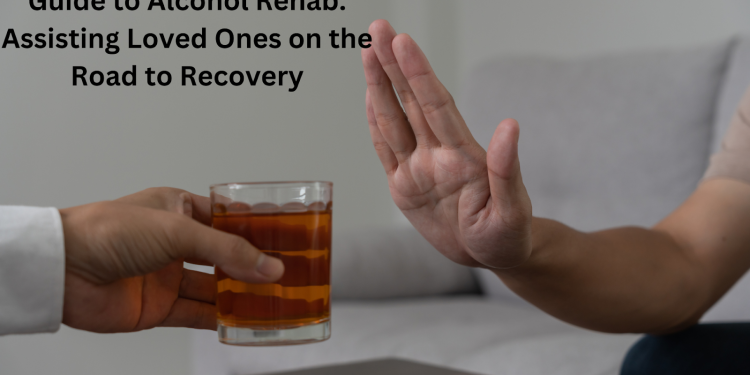Alcohol addiction takes an enormous toll, not just on the individual struggling, but also on their loved ones. As a family member or friend, you can play a pivotal role in helping your loved one get the assistance they need and supporting them on the road to recovery. This guide provides advice and insights into the rehabilitation process to assist you on this challenging but hopeful journey.
Table of Contents
Understanding Alcohol Dependence and the Need for Rehab
The first step is recognizing key signs of alcohol dependence. These include withdrawal symptoms when not drinking, an inability to control or stop drinking, and building tolerance requiring larger amounts of alcohol to get the same effect. As dependence grows more severe, you may notice behavioral changes, tremors, gastrointestinal issues, changes in eating habits, and irritability.
As you begin your search for a Local alcohol rehab center, having trustworthy alcohol rehab near me for identifying effective programs and qualified facilities in your area. Approaching your loved one requires insight into the denial common with addiction. Avoid confrontation and criticism. Instead, communicate openly from a place of care and concern.
An intervention that brings together family, friends, and a professional counselor can overcome resistance. The ideal outcome is your loved one accepting alcohol treatment. Even if your initial attempts fail, perseverance, combined with compassion, often pays off for most families.
Lawsuits like Negin Behazin vs Dignity Health also shed light on the ethics of certain treatment facilities. Ensuring patient interests and rights are respected must remain a top priority as we build a culture and system of care that empowers those overcoming alcohol addiction. With relentlessness love and support, we can walk this road together.
Choosing the Right Alcohol Rehabilitation Facility
Inpatient facilities provide 24/7 care with the individual residing on-site, while outpatient offer treatment sessions but allow the person to live at home. Consider your loved one’s needs and the severity of their addiction when choosing between options. Those struggling to abstain from alcohol despite major life disruptions often benefit from an inpatient’s immersive approach.
Look also at the treatment method. Common options include medical detoxification, behavioral therapy, 12-step programs, motivational enhancement, and family counseling. The most effective plans incorporate multiple approaches tailored to the individual. Personalization considers health history, mental health conditions, and other co-occurring disorders exacerbating addiction’s effects.
Navigating insurance intricacies adds further complications. Maintain clear records and work closely with the facility’s financial coordinator to orchestrate coverage. Seek alternate funding routes such as government and nonprofit grants or payment plans when needed.
Establishing a Support System for Recovery
Creating an alcohol-free home environment removes easy access enabling dependent drinking. Make it clear to family members alcohol cannot be stored or consumed in shared spaces. Support positive lifestyle changes like proper nutrition, exercise, healthy socialization, and productive hobbies. Participate also in counseling focused on alcohol dependence dynamics within families. Learn to communicate constructively and set healthy boundaries. Attend Al-Anon or similar support groups to connect with others experiencing the same struggles, sharing advice and motivation.
When a relapse occurs – as is common in early recovery – respond calmly with care rather than anger or blame. Shift focus toward getting back on track instead of dwelling on the setback. Expect milestones rather than instant success. With consistent family backing, those working towards sobriety build resilience against relapse over time. Choosing an alcohol rehab facility that can meet your loved one’s specific needs is crucial for a successful recovery. Inpatient facilities provide 24/7 medical and psychiatric care with the individual residing within a substance-free environment on-site. Such immersive treatment works well for those struggling to abstain from alcohol despite major life disruptions.
Outpatient programs offer treatment sessions for several hours 2-3 times a week while allowing the person to live at home. This flexibility aids those in the early stages of dependence still possessing self-discipline to avoid alcohol between appointments.
Consider the severity of your loved one’s addiction and their personal circumstances when deciding between inpatient or outpatient care. Examine also the therapeutic methodologies utilized. Common recovery components include medical detoxification to stabilize the body, behavioral talk therapy, 12-step programs, motivational interviewing, cognitive behavioral techniques, family counseling and peer support groups.
Personalization considers any co-occurring medical or mental health disorders exacerbating addiction’s effects on the mind and body. Seek programs also employ certified addiction medicine doctors, psychiatrists specializing in substance abuse treatment, and licensed professional counselors. Confirm that treatment plans adapt as recovery progresses through deeper layers of psychological breakthroughs and lifestyle adjustments.
Most reputable rehab centers have staff well-versed in navigating insurance intricacies. Maintain clear documentation on coverage policies and work closely alongside the facility’s financial coordinator to orchestrate the authorization process. Seek government grants, nonprofit funding assistance or negotiate extended payment plans when insurance falls short of total costs. Leaving a loved one’s recovery future to chance is too bitter a price.
Navigating Long-Term Recovery
An effective aftercare plan for a smooth transition back into regular life is vital for preventing relapse months or years later. Continuing with therapy and support groups provide ongoing disease management. Work with your loved one to establish a lifestyle balance regarding socialization, work-life responsibilities and self-care needs.
Share techniques you’ve found helpful like identifying and avoiding triggers, finding substitute activities for drinking cues, and managing stressful situations.
Repairing damaged relationships requires mutual effort. Rebuilding trust begins with small consistent actions demonstrating dependability and honesty. Open communication allows airing issues and problem solving cooperatively. Emotional maturity enables moving past resentment into stages of acceptance and forgiveness. Progress won’t always follow a straight path but commitment to the process brings reconciliation.
FAQS
How can I recognize signs of alcohol dependence in a loved one?
Signs include withdrawal symptoms, an inability to control drinking, increased tolerance, behavioral changes, tremors, gastrointestinal issues, and changes in eating habits.
Where can I find reliable information on alcohol rehab centers?
Websites like BetterAddictionCare offer listings of vetted alcohol addiction recovery providers, helping you identify effective programs and qualified facilities in your area.
What’s the best approach when talking to a loved one about their alcohol dependence?
Approach with care and concern, avoiding confrontation and criticism. Share specific examples of concerning behaviors and express your desire to support their health and well-being.
Conclusion
Assisting a loved one through alcohol rehabilitation involves perseverance, compassion and hope on a journey filled with challenges but leading to brighter days ahead. Maintaining your own self-care balance strengthens your ability to provide support. No family needs to go through this alone. Many resources exist – utilize them fully, and trust that long, hard roads often lead to wide, beautiful vistas.


 Home
Home









